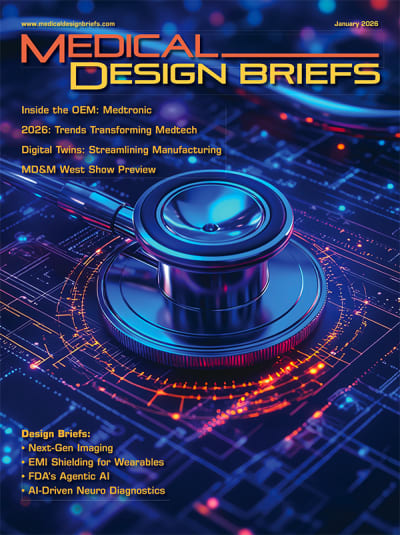Going to the dentist is always a less-than-welcome experience. However, a water purification technology developed for NASA could lead to a more satisfying end result and cleaner teeth.

MRLB International Incorporated (River Falls, WI) designed DentaPure®, a dental waterline purification cartridge that relies on water purification technology developed for NASA. MRLB’s unit can clean and decontaminate water as a link between the filter and dental instrument. The purification cartridge can be installed in seconds and changed weekly. For use on high-speed dental tools and other instruments, the cartridge is easily installed on all modern dental unit water lines.
As an answer to contaminated dental unit water, the product furnishes disinfected water, maintaining water purity even with suckback. Complete with a tiny membrane, the cartridge is crafted to remove or destroy bacteria to levels that meet or exceed American Dental Association recommendations for dental unit water quality.
How it Works
The cartridge for dental use incorporates a resin technology developed by Umpqua Research (Myrtle Creek, OR). Umpqua has been awarded a number of Small Business Innovation Research (SBIR) contracts by the Johnson Space Center, aimed at providing air and water purification technologies for human-carrying missions in space. Also, Umpqua developed bacterial filters that are used to ready the life support backpacks for NASA space-walking astronauts. Umpqua has provided NASA with the only space-certified and approved-for-flight water purification system that has flown on all Shuttle missions since 1990.
In 1993, the company demonstrated a regenerable purification unit, with NASA granting an exclusive license to the company, permitting the patented product to be adapted for commercial sale. Commercial applications of the SBIR-supported technology are promising — in schools, hospitals, and in countries around the globe. This same technology is scalable for use in municipal water treatment plants, yet portable in design to help far-flung villages have safe, drinkable water. Furthermore, the system can find utility in emergencies, like floods and other natural disasters, when a city’s infrastructure has collapsed.
An Umpqua innovation is the microbial check valve (MCV®). The device prevents back contamination of a drinking water supply by microorganisms, thanks to a flow-through cartridge containing iodinated ion exchange resin. It was found that, in addition to the microbial contact kill, the resin imparts a biocidal residual elemental iodine concentration to the water. That concentrate is sufficient to maintain a quality of drinkable water. Tests have shown that a single resin can be regenerated a hundred or more times.
Umpqua’s valve and resin have been adopted by NASA as the preferred means of drinking water disinfection aboard U.S. spacecraft. Canisters designed by the company are not only used on Space Shuttle missions, but for ground-based testing of closed life support technology, and are being deployed aboard the International Space Station. Iodine was selected by NASA as the disinfectant of choice because of its lower vapor pressure and reduced propensity for formation of disinfection byproducts in comparison to chlorine or bromine.
Where it Stands

Private sector commercialization of Umpqua’s technology developed under NASA contract has been impressive. According to World Health Organization estimates, more than one billion people lack daily access to safe drinking water. Thirty-five percent of all deaths in developing countries are directly related to contaminated water. Chlorination is a common method of disinfecting drinking water. But that means a need for electricity, pumps, tanks, and technical expertise, which often are unavailable in rural or remote locations in emerging nations.
One potential solution is the simple flow-through canister approach. The technology is ideal for societies that lack the infrastructure necessary for chlorination. No energy is required. The cartridge may simply be installed in line with the drinking water flow. Residual elemental iodine is imparted to the water on demand. Another plus is that the valve and resin can perform over a wide range of temperatures and flow rates.
“It's particularly useful out in the field where you can’t have somebody there to monitor microbial control technology and you need something simple and rugged enough for a variety of environments,” says co-inventor Clifford Jolly, who directed the fundamental development of the regenerable resins at Umpqua.
Vector Ventures, Inc. of Nevada is developing the first large-scale application of Umpqua’s Space-Shuttle-derived technology in Vietnam. Under a Memorandum of Agreement with that country, Vector will install water purification equipment to support 50 to 70 million people. Umpqua is also negotiating with other nations, such as Indonesia, India, and China to further expand the reach of its purification technology.
More Information
For more information on Umpqua’s purification technology, visit http://info.hotims.com/34452-184 .



